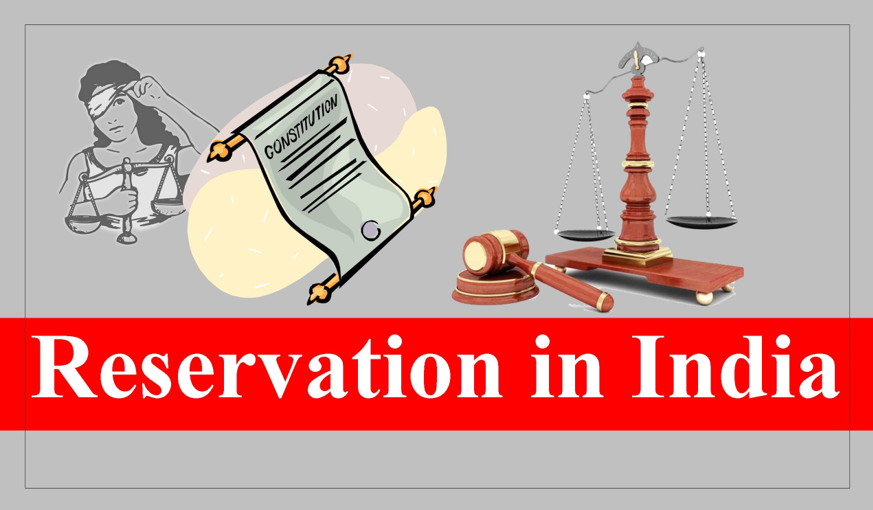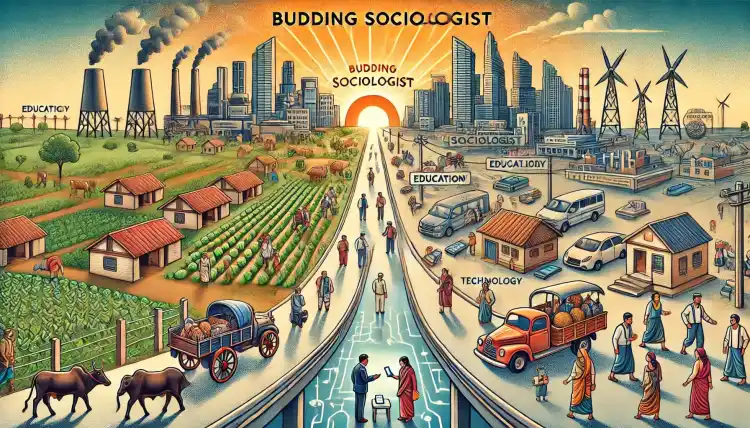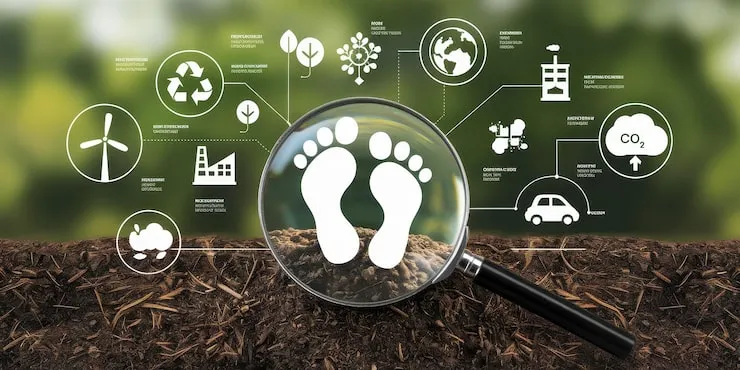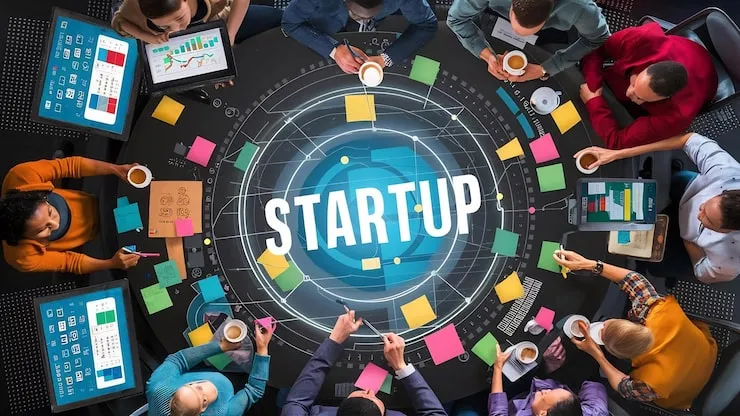Reservation regulations have really affected our culture, hence when we discuss India's growth narrative, we cannot overlook this. These regulations were designed to assist those who have faced unjust treatment for hundreds of years. But have they operated as meant to? Let's discover together!
What Are Reservation Policies and Why Do We Have Them?
Reservation legislation designates places in government positions, universities, and schools for individuals from particular regions. Scheduled Castes (SC), Scheduled Tribes (ST), and Other Backward Classes (OBC) are among these categories. What do these policies serve? For years, many Indian towns battled the caste system, which robbed people of access to decent education and jobs. Our country's leaders tried to fix this problem. They believed that offering these groups particular chances would help them to catch up with others. Dr. B.R. Ambedkar, who contributed to the draughting of our Constitution, was strongly in support of reservation. From his personal experience, he observed how hard it was for people of lower castes to thrive.
How Reservation Became Part of India's Constitution
Our leaders had to choose how to create a just society when India gained liberty in 1947. They included reservation in our Constitution to help disadvantaged groups. Article 15 and Article 16 of our Constitution allow the government to make special provisions for socially and educationally backward classes. These articles are the foundation of reservation policy in India. I remember learning about this in school and feeling proud that our Constitution tries to create equal opportunities for everyone.
The Current Reservation System in India
Today, reservation works like this:
- 15% seats for Scheduled Castes (SC)
- 7.5% seats for Scheduled Tribes (ST)
- 27% seats for Other Backward Classes (OBC)
- 10% seats for Economically Weaker Sections (EWS)
This applies to government jobs, public sector companies, and educational institutions funded by the government.
Different Types of Reservations
There are several types of reservations in India:
- Caste-based reservation: For SC, ST, and OBC communities
- Gender-based reservation: Special provisions for women
- Regional reservation: For people from certain regions
- Economic reservation: For economically weaker sections
Each type tries to address a different kind of inequality in our society.
Read also: Emerging Indian Social Networking Sites
The Positive Impact of Reservation on Indian Society
Reservation has helped many people from disadvantaged groups. Here are some ways it has made a difference:
Educational Opportunities
Before reservation, very few people from lower castes went to college. Now, thanks to reserved seats, many more can get higher education. My friend Rajesh comes from a village where no one had ever gone to college before. Because of reservation, he got into a good engineering college and now works at a big tech company in Bangalore. His whole family's life has changed for the better!
Representation in Government
Reservation has helped people from all backgrounds get jobs in government. This means government offices now better understand the needs of all communities. When I visited a government office last year, I met officers from different castes and tribes. They told me how proud they felt to serve their communities and country.
Breaking Social Barriers
Perhaps the biggest success of reservation is how it's helping break down old social barriers. When people from different backgrounds study and work together, they learn to respect each other. In my college days, I had classmates from all castes and regions of India. We became good friends and learned so much from each other's cultures and experiences.
Challenges and Criticisms of the Reservation System
Despite its benefits, reservation faces many challenges and criticisms. Let's look at some of them:
The Creamy Layer Issue
One big problem is that better-off families within reserved categories often get most of the benefits. This is called the "creamy layer" problem. I've seen this in my own neighborhood. Some families have been using reservation benefits for generations, while others who need help more urgently can't access these benefits.
Merit vs. Reservation Debate
Some people argue that reservation goes against merit-based selection. They worry that it might lower standards in education and jobs. I remember a heated debate in my college about this. Some students felt that all selections should be based only on marks and test scores. Others pointed out that merit isn't just about test scores—it's also about overcoming obstacles.
Has Reservation Reached Its Goals?
After more than 70 years of reservation, has it achieved what it set out to do? Social justice and reservation in India remain complex topics. Some communities have definitely benefited. But others still face discrimination and poverty. The question is: should reservation continue as it is, or does it need changes?
Impact on Social Balance and Harmony
Reservation has both united and divided our society.
Building a More Equal Society
By providing chances to individuals who were denied them for millennia, reservation has helped to build a more equitable society. In India, this is a significant advance towards social fairness. Every time I see a first-generation college graduate from a low income family, I feel optimistic about the future of our nation.
Tensions and Divisions
But reservation has also created tensions. Some people feel left out because they don't qualify for reservation even though they face economic hardships. I've seen protests about reservation in several cities. People on both sides have strong feelings about the issue.
The Future of Reservation in India
What does the future hold for reservation in India? Let's look at some possibilities:
Possible Reforms
Many experts suggest reforms to make reservation more effective:
- Focus more on economic criteria alongside caste
- Exclude the "creamy layer" from all reserved categories
- Improve the quality of primary education for all
- Create more jobs so that competition becomes less fierce
These changes could help reservation reach those who need it most.
Alternative Approaches to Social Justice
Some people suggest other ways to create a fair society:
- Improve government schools in rural areas
- Provide scholarships based on financial need
- Create skill development programs for disadvantaged groups
- Fight discrimination through education and awareness
Last year, I went to a school in a distant hamlet employing innovative teaching strategies to let kids from all backgrounds flourish. Their results were amazing! This shows that good education can be a powerful tool for social change.
Read also: Indian Social Structure And Family System
Personal Stories: How Reservation Changed Lives
Let me share some real stories of how reservation has affected people's lives.
Success Stories
Meena comes from a small village in Rajasthan. Her parents are farm workers with little education. Thanks to reservation, she got into a good medical college and is now a doctor serving in her home district. She told me, "Without reservation, I could never have dreamed of becoming a doctor." Arvind's family has faced discrimination for generations. With reservation, he got a government job and can now provide a good education for his children. "Reservation gave me dignity and security," he says.
Continuing Challenges
But not all stories are success stories. Many people from disadvantaged backgrounds still struggle despite reservation. Lakshmi qualified for a reserved seat in a good college but couldn't afford the hostel fees and other expenses. She had to drop out after one year. Raju got a government job through reservation but faced discrimination from his colleagues. They made him feel like he didn't deserve his position. These stories show that reservation alone can't solve all problems. We need to address other issues like poverty and discrimination too.
Research on Reservation's Impact
What does research tell us about reservation's impact? Let's look at some findings:
Economic Mobility
Studies show that reservation has helped some groups move up economically. Children of parents who benefited from reservation often do better in life. A research paper I read last month showed that SC/ST families with a member in a government job had better education and health outcomes than those without.
Persistent Gaps
But research also shows that gaps between upper and lower castes remain large. Impact of reservation in India has been positive but limited. According to a recent survey, SC/ST communities still lag behind in income, education, and health indicators. This suggests that reservation needs to be part of a broader approach to social justice.
Comparing India's Reservation System with Other Countries
India isn't the only country with policies to help disadvantaged groups. Let's see how our system compares with others:
Affirmative Action Around the World
In the US, affirmative action measures benefit women and ethnic minorities. Malaysia has specific rules for the Bumiputera (ethnic Malays). South Africa has policies to assist apartheid-affected people. Many people I met in these nations were curious about India's reservation system. They wished to benefit from what we knew.
Lessons from Other Models
What can India learn from other countries?
- Focus more on economic disadvantage alongside social disadvantage
- Combine reservation with strong anti-discrimination laws
- Invest more in quality education for all
- Set time-bound goals for reservation policies
These ideas could help improve our reservation system.
Finding a Balance: The Way Forward
How can we make reservation work better for everyone? I believe we need a balanced approach:
Keeping What Works
Reservation has helped many people from disadvantaged backgrounds. We should keep this important tool for social justice.
Making Improvements
But we can also make improvements:
- Target benefits to those who need them most
- Combine reservation with better education and job creation
- Fight discrimination through awareness and laws
- Review reservation policies regularly to see if they're working
I believe that with these changes, reservation can better serve its purpose of creating a fair and equal society.
Conclusion: The Ongoing Journey Toward Social Justice
The impact of reservation policies on Indian social balance is complex. Reservation has helped many people and communities over the past 70+ years. But it hasn't solved all problems of inequality and discrimination. We also have to consider how to make reservation more efficient as we go; we also have to create additional instruments for social justice. This is about creating a society where everyone has a fair opportunity to achieve, not only about policies. What do you think about reservation? Your ideas and experiences in the comments area below would be much appreciated!













